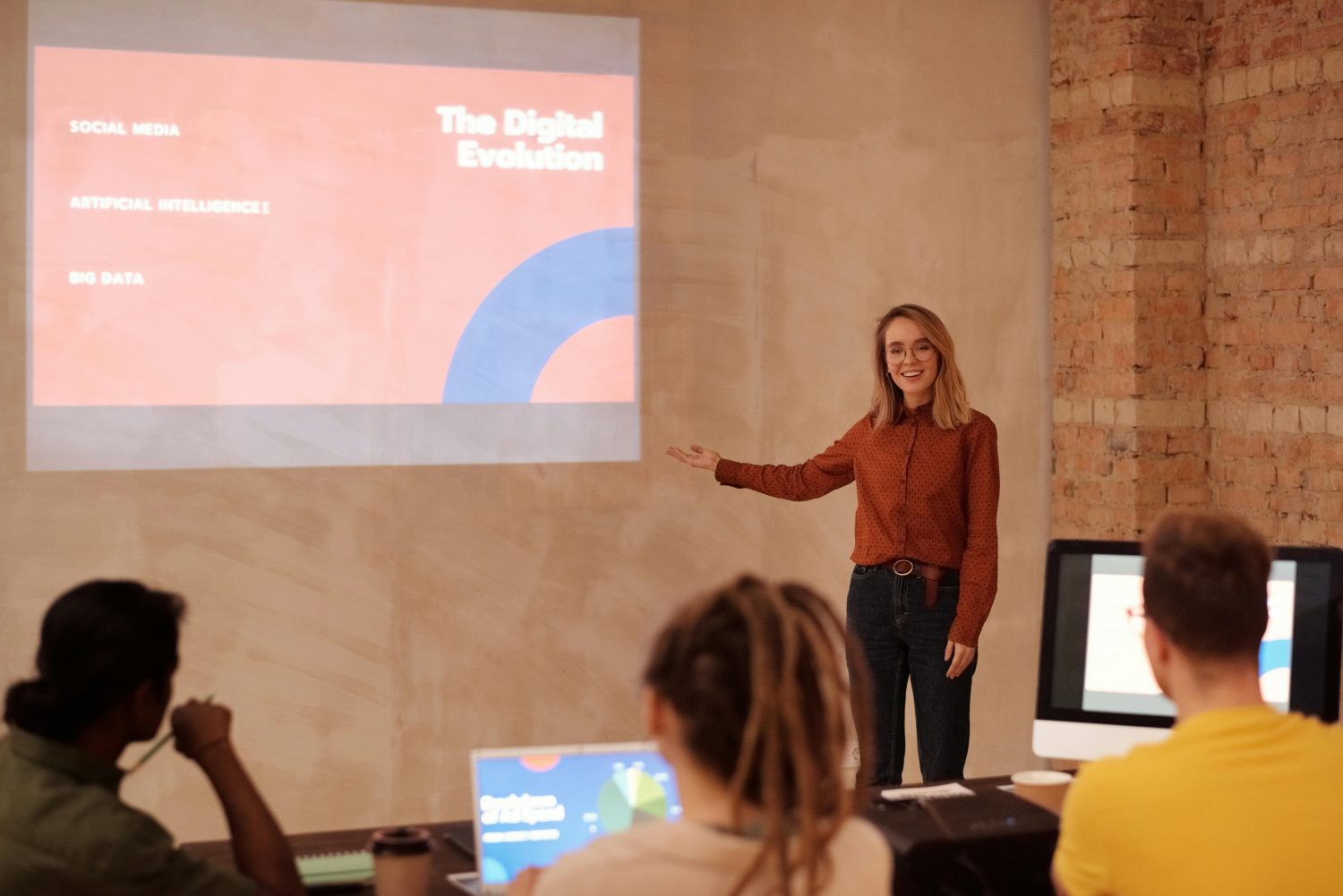When it comes to digital marketing, personalization has become a necessity for effective content creation and marketing strategies. From personal recommendations on streaming platforms to personalized product suggestions in e-commerce, consumers increasingly expect content that hits home with their individual preferences and interests. Artificial Intelligence (AI), particularly ChatGPT, has become a useful tool for enabling businesses to deliver personalized content experiences at scale. In this article, we will explore how ChatGPT can aid in creating and delivering personalized content that enhances user engagement and drives meaningful interactions.
Understanding Personalization in Content Creation
Personalization in content creation is a strategic approach that tailors messaging and experiences to align closely with the preferences, behaviors, and context of individual users. Unlike traditional segmentation based on broad demographics, which can overlook differences among users, personalization goes a little deeper into understanding each user’s specific needs, interests, and challenges. By analyzing data such as browsing history, past interactions, and preferences expressed through engagement metrics, businesses can craft content that will relate on a personal level.
This approach not only improves user experience by delivering content that is both relevant and engaging but also strengthens the connection between brands and their audiences. When users see content that speaks directly to their interests or addresses their unique pain points, they are more likely to engage with it, spend more time on the website, and return for future interactions. This increased engagement not only grows brand loyalty but also boosts the likelihood of conversion and drives customer satisfaction.
Moreover, effective personalization goes beyond recommending products or services; it involves anticipating user needs and providing value at every touchpoint of the customer journey. For instance, personalized content may include customized product recommendations based on previous purchases, personalized email newsletters with content for specific interests, or interactive experiences that adapt in real-time based on user feedback and behavior.
In today’s competitive landscape, where consumers have access to an unlimited amount of information and choices, personalized content stands out as a powerful differentiator. It demonstrates a brand’s commitment to understanding and serving its audience’s individual preferences, building deeper relationships with trust and relevance. As technology continues to change, using advanced tools and algorithms—such as AI-driven models like ChatGPT—can improve the precision and scalability of personalized content strategies, enabling businesses to deliver seamless, cohesive experiences across digital platforms.
The Role of ChatGPT in Personalized Content Creation
ChatGPT, built on OpenAI’s advanced GPT-3.5 architecture, represents a significant advancement in natural language processing and AI-driven content generation. Unlike earlier iterations, ChatGPT excels not only in understanding natural language but also in generating relevant and coherent text across many topics and domains. This makes it an invaluable tool for enhancing personalization in content creation across digital platforms.
At its core, ChatGPT uses deep learning techniques to analyze vast amounts of user data and interactions. By processing information such as browsing behavior, engagement metrics, and historical preferences, ChatGPT can gain actionable insights that drive personalized content strategies. For instance, it can predict user preferences, anticipate content needs, and filter recommendations based on individual interests and past interactions.
Moreover, ChatGPT’s ability to generate dynamic content goes beyond static recommendations. It can actively refine messaging in real-time based on immediate user feedback, ensuring that the content remains relevant and engaging. Whether through personalized email campaigns, customized product suggestions, or interactive website content, ChatGPT adapts communication styles and tones to sit with each user on a personal level.
Furthermore, ChatGPT enhances scalability and efficiency in content creation by automating tasks and simplifying workflow processes. This allows marketers and content creators to focus on other aspects of their business, using ChatGPT to deliver compelling content that boosts user engagement and conversion.
Key Benefits of Using ChatGPT for Personalization
1. Data-Driven Insights
ChatGPT can analyze large volumes of user data, including browsing history, preferences, and interactions with previous content. By processing this data, ChatGPT can provide valuable insights into user behavior patterns and preferences, letting businesses filter content strategies accordingly.
2. Dynamic Content Generation
ChatGPT can dynamically generate content to individual users in real-time. Whether it’s personalized email campaigns, customized product recommendations, or interactive website content, ChatGPT can create engaging and relevant content for each user on a personal level.
3. Enhanced User Engagement
Personalized content crafted by ChatGPT enhances user engagement by delivering content that matches user interests and preferences. This leads to increased time spent on websites, higher click-through rates on emails, and more meaningful interactions across digital platforms.
4. Efficiency
ChatGPT’s ability to automate content creation and personalization processes enhances scalability for businesses. It reduces manual effort in crafting individualized content pieces, allowing marketers to focus on strategy development and creative initiatives.
Implementing ChatGPT for Personalization
Step 1: Define Personalization Goals
Identify specific objectives for personalization, such as improving user retention, increasing conversion rates, or enhancing overall user experience. Establish key performance indicators (KPIs) to measure the success of personalized content initiatives.
Step 2: Integrate ChatGPT with Data Sources
Connect ChatGPT with relevant data sources, such as CRM systems, customer databases, and behavioral analytics platforms. Ensure that ChatGPT has access to accurate and comprehensive data to generate meaningful insights and personalized recommendations.
Step 3: Develop Personalization Strategies
Use ChatGPT to develop personalized content strategies across various digital channels, including websites, social media, email marketing, and customer support. Tailor content formats, messaging tones, and product recommendations based on user preferences and behaviors.
Step 4: Monitor and Optimize Performance
Continuously monitor the performance of personalized content initiatives using analytics tools. Measure KPIs such as engagement rates, conversion rates, and customer satisfaction scores. Use insights to refine personalization strategies and optimize ChatGPT’s content generation capabilities.
Real-World Applications of ChatGPT in Personalization
1. E-commerce Recommendations
ChatGPT analyzes browsing behavior and purchase history to provide personalized product recommendations to online shoppers. By understanding user preferences and shopping patterns, ChatGPT enhances the shopping experience and increases sales conversions.
2. Content Curation in Media
Media companies use ChatGPT to curate personalized news feeds and content recommendations based on reader interests and engagement history. This improves reader retention and satisfaction by delivering relevant and timely content updates.
3. Customer Support Automation
ChatGPT uses intelligent chatbots that deliver personalized customer support experiences. By understanding customer inquiries and preferences, ChatGPT can provide relevant information, troubleshoot issues, and escalate complex queries to human agents when necessary.
Ethical Considerations in Personalization
While personalization offers many benefits, businesses must consider ethical implications, such as data privacy, consent, and transparency. Also to make sure that user data is handled responsibly, and users have control over how their information is used for personalization purposes.
Future Trends in AI-Powered Personalization
As AI technology continues to change, future trends in AI-powered personalization may include:
- Multimodal Capabilities: Integrating ChatGPT with image and video processing technologies to personalize multimedia content experiences.
- Predictive Analytics: Using AI to predict user preferences and behaviors, enabling proactive personalization strategies.
- Contextual Understanding: Enhancing ChatGPT’s ability to understand and respond to contextual cues in user interactions, improving the relevance and accuracy of personalized content.
Conclusion
In conclusion, ChatGPT represents a transformative tool for enhancing personalization in content creation across various digital platforms. By leveraging ChatGPT’s capabilities to analyze data, generate dynamic content, and optimize user engagement, businesses can deliver personalized experiences that resonate with individual users and drive meaningful interactions. As AI technology continues to advance, embracing personalized content strategies powered by ChatGPT will enable businesses to stay competitive in a rapidly evolving digital landscape while prioritizing user-centric experiences and ethical considerations.
FAQ
1. What is ChatGPT, and how does it contribute to personalized content creation?
ChatGPT is an AI model developed by OpenAI, specifically GPT-3.5, known for its ability to understand and generate human-like text based on the input it receives. In personalized content creation, ChatGPT analyzes user data to tailor messaging and recommendations, enhancing user engagement and satisfaction.
2. How does ChatGPT analyze user data for personalization purposes?
ChatGPT processes various types of user data, including browsing history, interactions with content, and demographic information. It uses this data to understand individual preferences and behaviors, allowing businesses to deliver content that matches users’ interests and needs.
3. What are the benefits of using ChatGPT for personalized content creation?
Using ChatGPT enables businesses to automate and scale personalized content strategies effectively. Benefits include enhanced user engagement, improved conversion rates, and the ability to deliver timely and relevant content across digital platforms.
4. Can ChatGPT adapt content in real-time based on user feedback?
Yes, ChatGPT can dynamically adjust content based on immediate user interactions and feedback. This real-time adaptation ensures that content remains relevant and engaging, fostering deeper user engagement and satisfaction.
5. How can businesses integrate ChatGPT into their existing content strategies?
Businesses can integrate ChatGPT by connecting it with relevant data sources such as CRM systems and analytics platforms. This integration enables ChatGPT to access and analyze user data effectively, driving personalized content recommendations and strategies.
6. What ethical considerations should businesses keep in mind when using ChatGPT for personalization?
Businesses must prioritize data privacy, transparency in data usage, and obtaining user consent for personalized content. It’s essential to handle user data responsibly and ensure compliance with data protection regulations to maintain trust and credibility.
Featured Image Credit: Photo by frimufilms; Freepik; Thank you!









